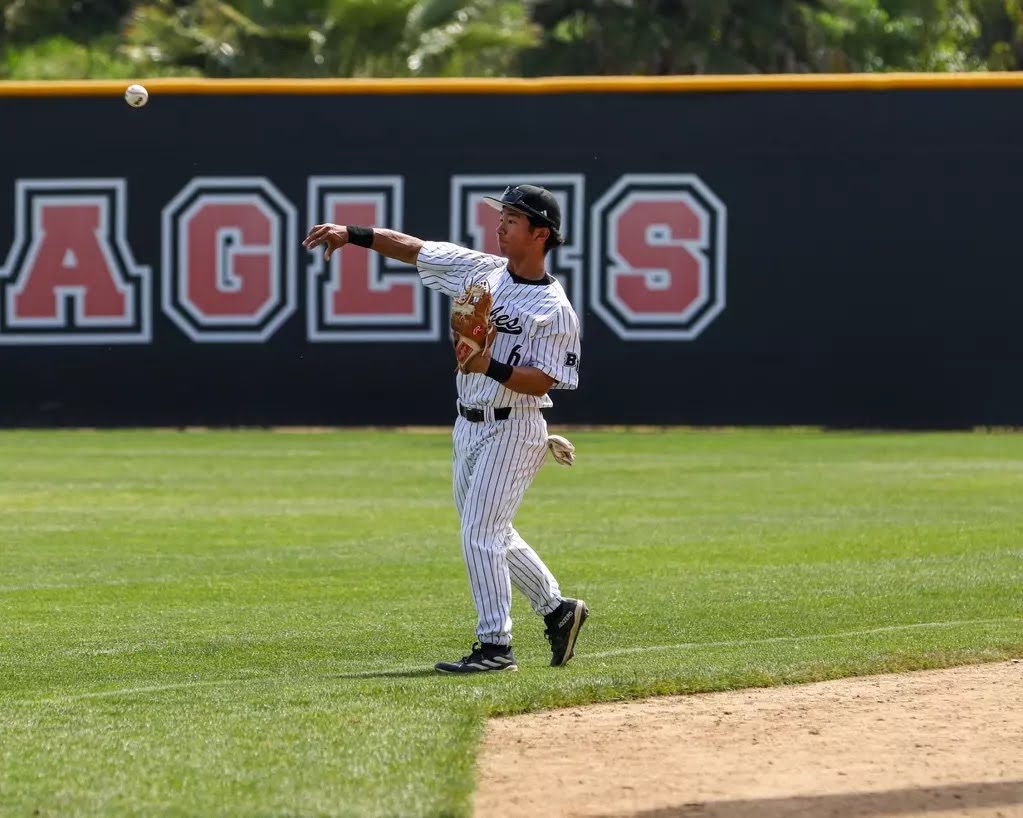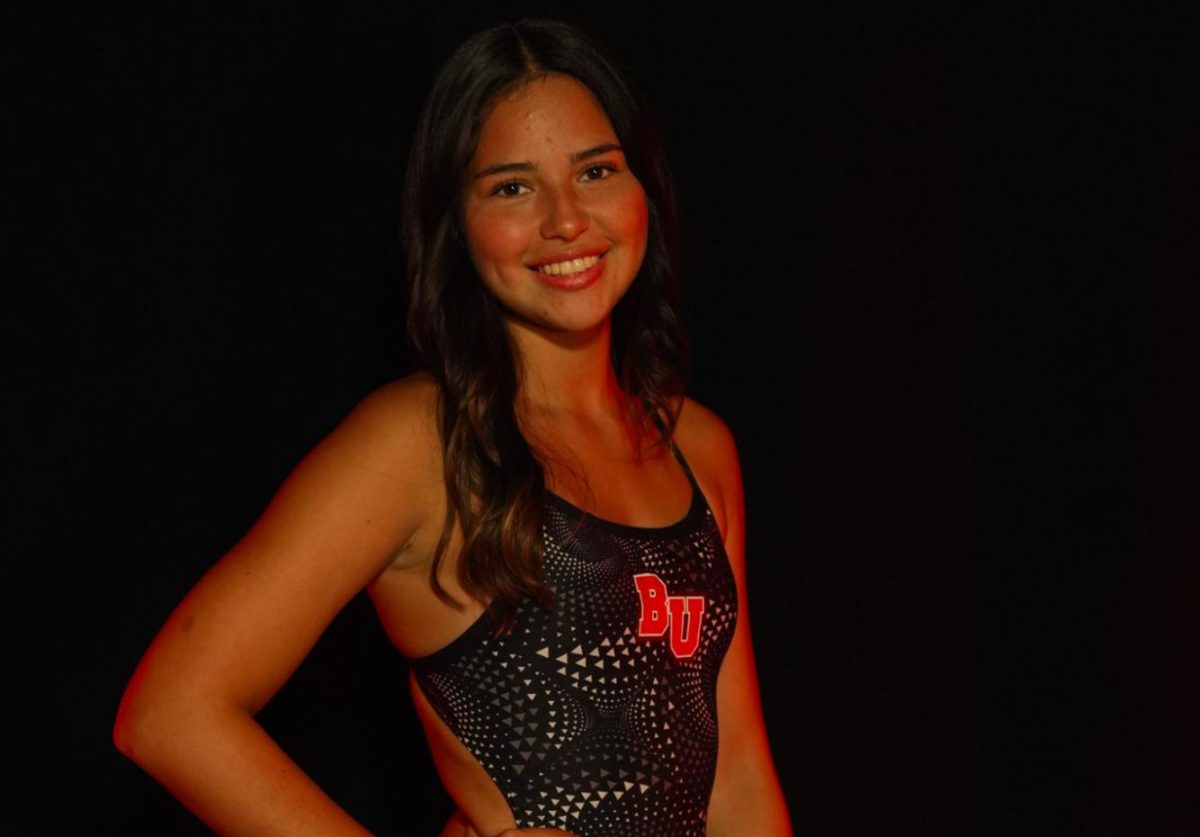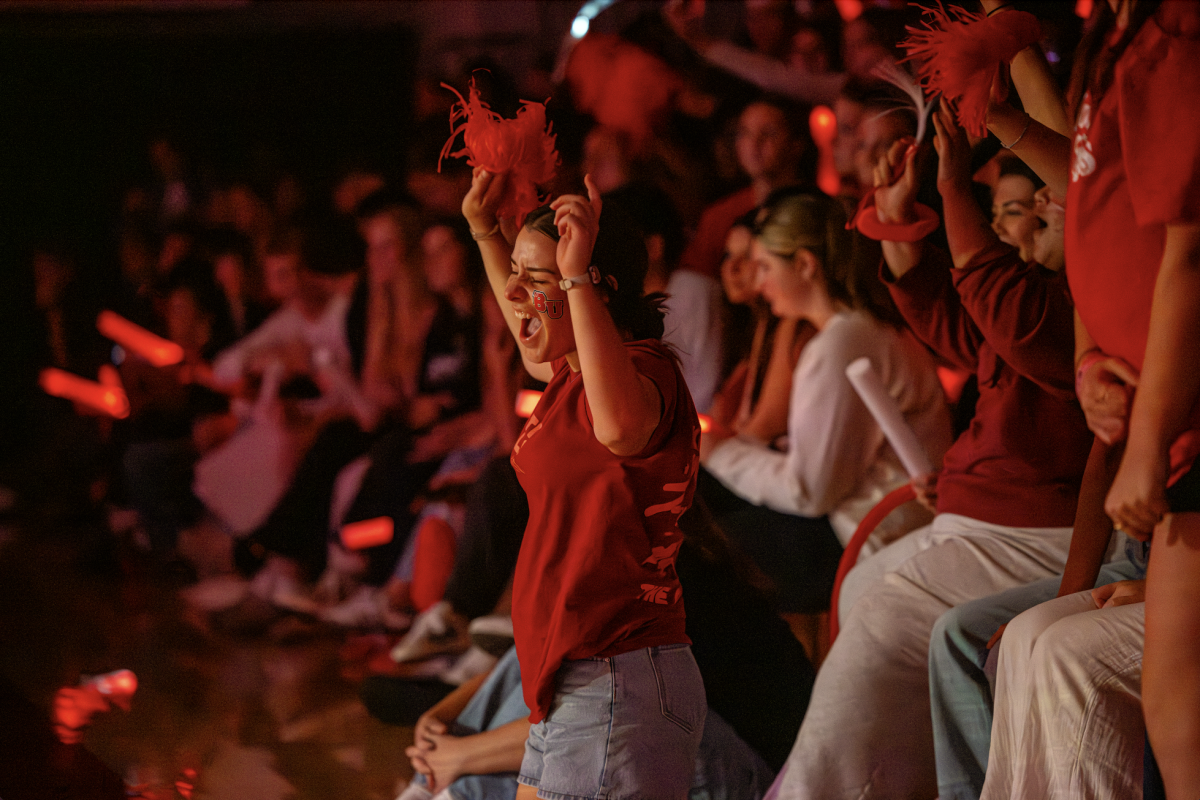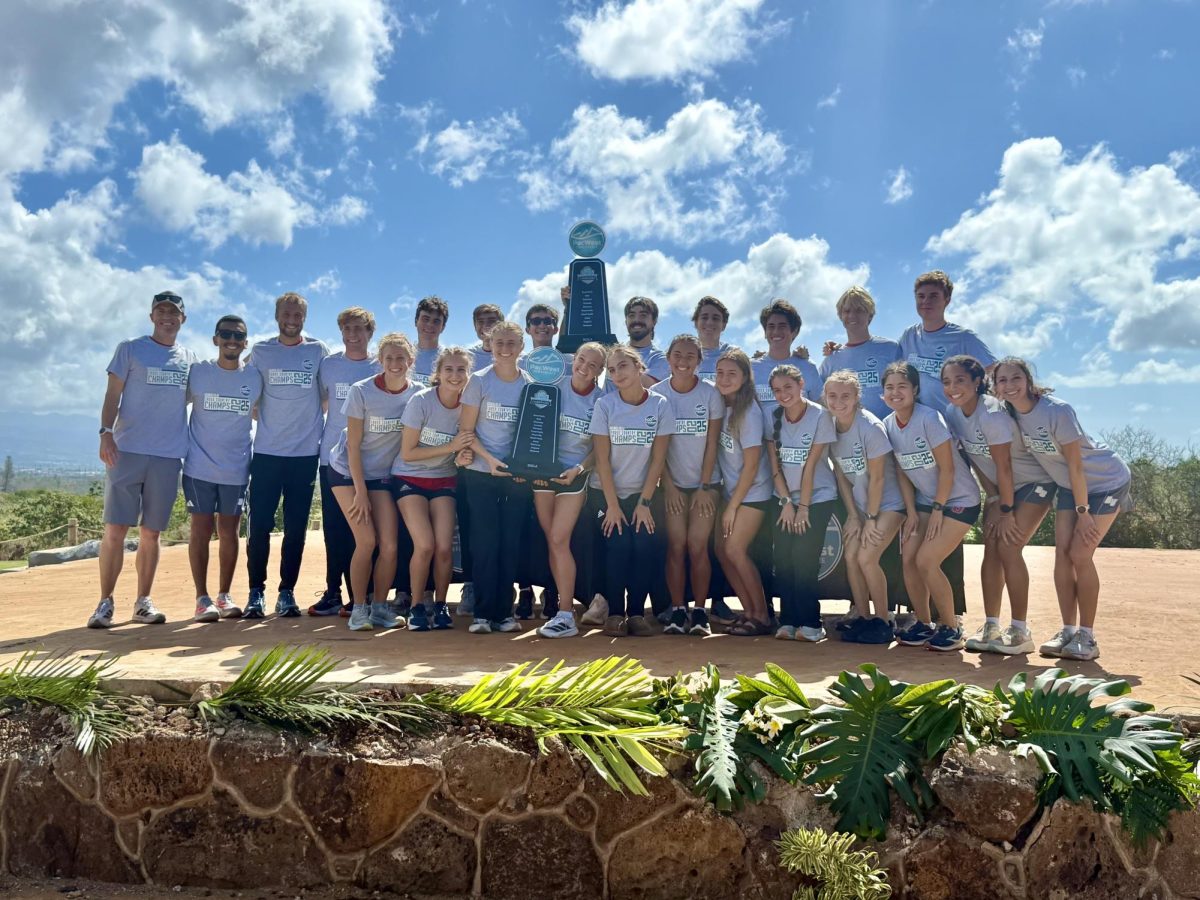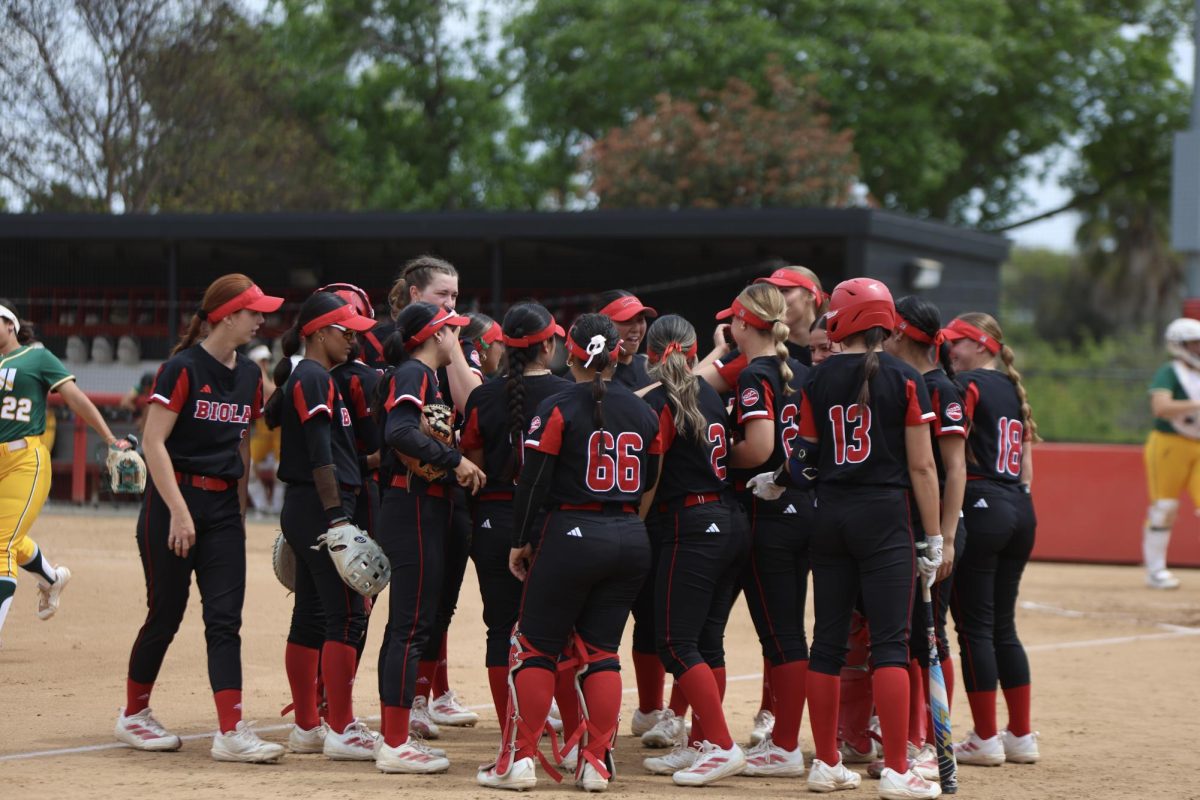From once playing on Biola’s Eagle Diamond, to stepping onto the sidelines, business graduate student Jonathan Kumai is leaving a lasting impact on the Biola baseball community as he continues his journey through the program as the graduate assistant coach.
SEED PLANTED
Midseason, when Kumai was still a player, Jesse Rodgers, the head coach of the baseball department, planted the idea of returning as the grad assistant and asked Kumai if he would be interested in taking on the role. At first, when Kumai received the offer, he had no interest in coaching but spent time in prayer about it.
“I felt like the Lord was kind of calling me to come back,” said Kumai. “And then at that point, after praying about it, I felt like it was the right move to come back and then also start grad school here too.”
Kumai wanted to be a coach for the spiritual aspect, and when he committed to focusing on players’ spiritual walk, he fell in love with the coaching part. He didn’t think he would like coaching but ended up enjoying it.
Through this experience, he can now see what it means to be an Eagle from a playing and coaching perspective.
“We’re playing for a higher purpose, that it’s not just to win baseball games, but to be a witness and glorify God in the place that he’s called us to come, which is here,” said Kumai.
Kumai went full circle as he is now in a position to help mentor his former team. Regardless of his position as a player or a coach, he has represented Christian leadership and what it means to wear the Eagles uniform.
Kumai attended Biola during his last year of college and left a mark on which Coach Rodgers may have recognized the potential for him to continue his influence, this time from the coaching side.
A NEW CHALLENGE
Kumai was a part of class ‘24, so just last season, he was on the team playing the game he loves. He must now find the balance between being a coach and fostering friendships with his former teammates. Kumai originally found this a challenge because he doesn’t like telling someone what to do or delegate a situation, but now that is his job.
“As a coach, your job is to focus on the players and the players only,” said Kumai. “And so that took a lot of adjustment and change to switch my mindset from just doing my own thing to focusing on the team and how we’re doing, like what we need to work on and pushing guys, even if it might be uncomfortable for me at first.”
Freshmen and transfer students know Kumai as their coach since they didn’t play with him, so the player-coach relationship is natural.
“For some of the older guys I’m really close to, it can get interesting sometimes,” said Kumai. “These are some of my best friends now, even though I’m a coach and they’re players, it is interesting at times, just having to filter some of the things that I say, or like, some of the things that we talk about.”
In baseball, there are so many coaches who have taken the joy out of the game, but Kumai is the balance of nature being able to foster the competitive and brotherhood aspect.
A NEW PERSPECTIVE
From a coaching perspective, Kumai has developed a new perspective of the game he has played since T-ball. As a coach, seeing each player step into the batter’s box, Kumai now sees it from a different perspective, where you’re not playing or have zero control over the game.
“It’s a lot more team-oriented than individual, and so knowing strategically where to put hitters in the lineup, when to call different plays,” said Kumai. ”All that at certain times in the game is something I’m learning now, and it’s like a much different perspective than as a player, where you just go up and do your job.”
Seeing the players do well and investing in the players is what Kumai loves from his new position.
“It’s almost more rewarding seeing them do well than when I would do well as a player, just because, to see the joy in them, when they win, or like when they’re working really hard on something, then something finally clicks,” said Kumai. “That’s what satisfies or makes every coach want to keep doing what they’re doing.”

